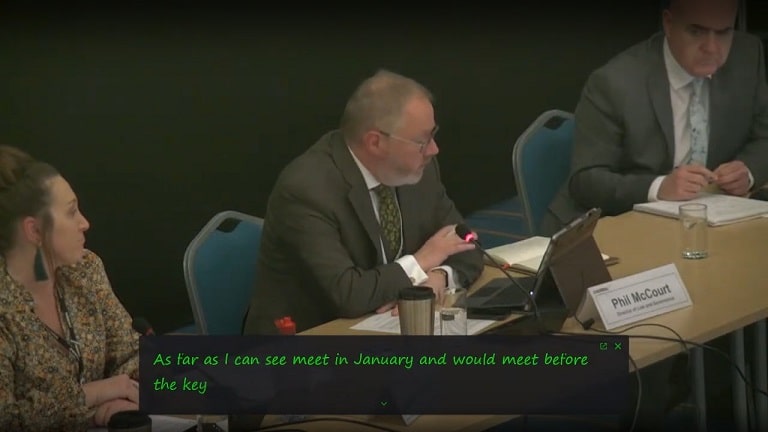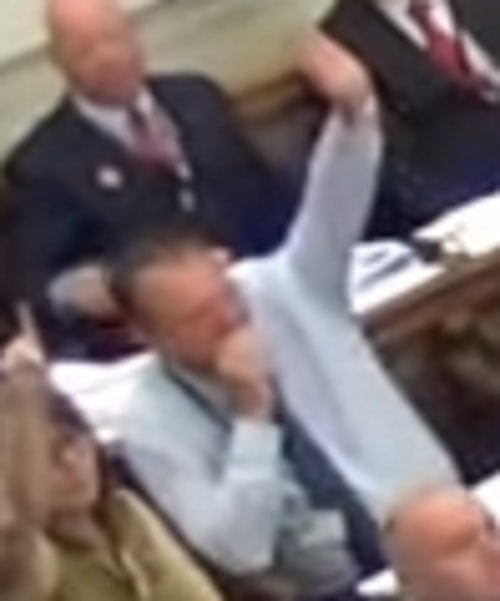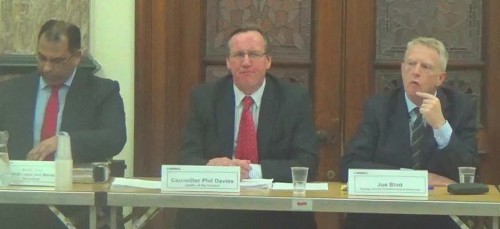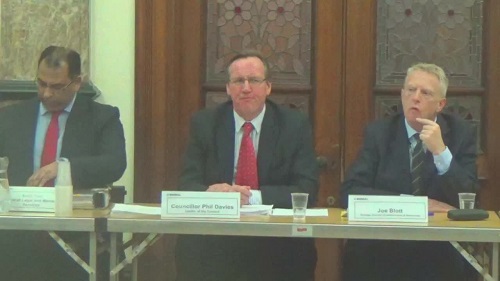Lyndale School Closure Consultation: Cllr Phil Gilchrist “this looks to be a set of moving goalposts”

Cllr Phil Gilchrist (left) presented with the Andy Day Memorial Cup by former Mayor Cllr Dave Mitchell (right)
Councillor Phil Gilchrist (the Leader of the Liberal Democrat Group on Wirral Council) has kindly provided this blog with his consultation response to the Lyndale School Closure Consultation. It is reproduced below. For the purpose of clarity when reading the acronyms SEN and DCSF have been expanded and this addition appears in brackets [] in bold italic text.
Ed – Updated (revision 4) 10:50 12/8/14 to replace absolute values in table 1 with relative values to fix display problem.
Ed – Updated (revision 5) 10:55 12/8/14 to replace absolute values in table 2 with relative values to fix display problem. Linked email address.
Feedback Form
Please let us know the main relationships you have with the school(s) by putting a tick in the appropriate box or boxes. You might be a parent and a member of staff, for example.
| School |
Parent
|
Member of Staff
|
Governor
|
Other Person
|
| Elleray Park |
|
|
|
|
| Lyndale |
|
|
|
|
| Stanley |
|
|
|
|
| Foxfield |
|
|
|
|
| Meadowside |
|
|
|
|
| Other (Please Specify) |
|
|
|
Cllr
|
I attended the consultative meeting held at Acre Lane on 10th April and the further meeting held on 16th June.
I have also visited The Lyndale School on 27th January on a private fact finding arrangement, and, on 9th May after a request from parents.
In addition I have visited the school and Stanley, Foxfield, Meadowside and Elleray Park with other councillors on 16th and 17th June.
I was also a signatory to the ‘Call In’ considered by the Council committee.
Short fact finding visits can only provide a brief picture of how a school works day by day. In making the recent visits I formed a strong impression of the way the children at The Lyndale might be ‘compared’ with children of the same ages at Elleray Park and Stanley.
In attempting this I also need to take account of the needs that I did not see – children who are not in the school, that day, because of their poor health.
It seems to me that a high proportion of children attending Lyndale have the most serious needs.
Lyndale may not be the best laid out building but is ‘home’ and provides the atmosphere and the facilities to stimulate the children.
The financial problems flow from the formula adopted by the Council.
Consultation on changing the funding formula began in 2010, under the last Government, when the DSCF [Department for Children, Schools and Families] looked at the formula (Chapter 4) for high cost pupils.
The formula the Council adopted in 2013 arose from discussions at the Schools Forum which chose the present banding system which has added to the pressures on Lyndale’s finances.
The parents need the utmost assurances that the care and education being provided must continue to that same high standard.
Without sight of ‘the answers’ provided to parents I am aware that reference is regularly made to what the SEN [Special Educational Needs] ‘test’ should ensure.
As I mentioned at the last meeting this looks to be a set of moving goalposts.
A ‘pale imitation’ is not good enough for the children.
Some years ago parents did seek the creation of an all through school, up to the age of 19. One of the ‘drivers’ was the issue of ‘transition’ at age 11.
Councillors who visited Foxfield and Meadowside were assured that there is a very thorough process for transition – with study of the children, visits to Lyndale by staff before children move, and visits by parents to those schools.
These visits showed the differences in the buildings ‘on offer’.
The new Stanley building was ‘sparse’ and assurances were given that any new additions could be designed with needs of ‘The Lyndale’ children in mind
However this appeared to be an addition as an ‘afterthought’.
The children at Elleray Park had different needs from the children at Lyndale.
Assurances have been given that schools can adapt their teaching styles and methods to the needs of children, that parents have choice and that there is good communication between professionals.
It is apparent that the parents at Lyndale place great emphasis on the way the staff the children ‘know’ interact with them Equally the staff are able to ‘read’ the developing signs and gestures that the children are able to return.
I have asked how the ‘Lyndale’ can be completely replicated elsewhere.
The answer has not, as yet, as far as I know, been given in a way that fully satisfies the parents,
However, if the Council insists on change then it should design a setting that has the atmosphere and facilities valued by parents, several classrooms with accessible changing, a communal hall where children can fully socialise and guaranteed access to hydrotherapy. .
Please tell us your name and address, postcode, and email address if you have one. We will not use your personal information for anything other than this consultation.
| Name: Phil Gilchrist |
| Address: 2 Gordon Avenue Bromborough |
|
|
Postcode: CH62 6AL |
| Telephone: 0151 334 1923 |
| E-Mail:philgilchrist@wirral.gov.uk |
Please note: In order to ensure that this process is fully open and transparent, other people will be able to read all the responses to this consultation.
Please return this form to:
Email: specialreview@wirral.gov.uk
Post: The Lyndale School Consultation
Children and Young People’s Department
Hamilton Building
Birkenhead
CH41 4FD
Please make sure your response is submitted by:
Wednesday 25th June 2014.
If you click on any of the buttons below, you’ll be doing me a favour by sharing this article with other people.





